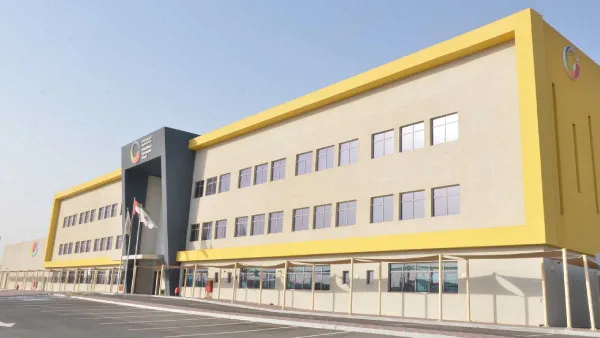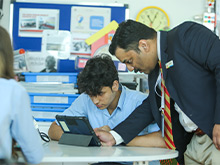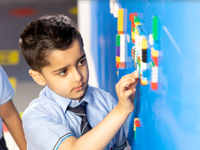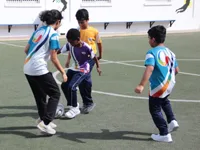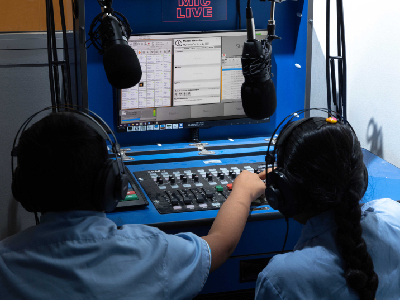Every student has a different way of absorbing information. Therefore, it is necessary for teachers to introduce ideas and reinforce concepts in different ways to help each student learn effectively at their own pace. Every parent wants their children to be well-educated.
However, it is the strategies of teaching that decide how well a student will learn everything being taught to them in class. Therefore, it becomes important for parents to choose the right school that can ensure the holistic development of their children by employing effective methods of teaching.
In Abu Dhabi, many schools have included a number of innovative teaching methodologies in their educational framework. Let’s understand how these methods came into the picture before we take a look at which teaching methods parents need to look for when choosing the right school.
Overview of Schools in Abu Dhabi
The city of Abu Dhabi offers a number of curricula that have been approved by the UAE’s Ministry of Education. From American curricula and UK to IB and CBSE, there are varied options available for children. The different strategies adopted by these learning approaches are important in improving the engagement levels of students.
That being said, what separates a top Abu Dhabi Indian school from the rest is its ability to inculcate authentic Indian values in its students while also employing all the right effective teaching strategies to ensure their overall development. Listed below are eight highly competent and effective teaching methods that are practised in schools offering high-quality education in Abu Dhabi
Different Types of Effective Teaching Methods
1. Personalised Learning
Students have a better chance of understanding concepts during one-on-one interactions with their teachers. This is possible since the teachers are able to understand the unique problems that the student might be facing and are therefore able to explain concepts with examples that are tailor-made to fit the child’s point of view.
It also helps students who might be shy in groups to open up and ask questions to their teachers without any inhibition. As time passes, personalized learning keeps getting better as the student’s trust grows in their teacher. At the same time, the teachers are also able to understand the student’s knowledge gap and therefore impart the necessary information with more precision.
2. Visualization
Studies have shown that using pictorial cues helps students in remembering concepts taught in class much better. The reduced dependency on reading or listening helps students minimise the stress of having to pay too much attention.
With the use of pictures and images, teachers can ensure that students can learn to rely on their visual memory and this can therefore improve their performance in tests as well. Even the discussion of mental images formed by students after learning a concept can help them strengthen their understanding of that concept more efficiently.
3. Cooperative Learning
By collaborating with their peers, students can not only learn rapport-building through coordination but also increase their scope of knowledge by questioning and answering each other. There is an improvement in their self-confidence as students have to find their voice among others and relay their ideas effectively.
Consequently, their communication skills are also developed because of the constant to and fro involved in discussing their ideas. Performing scientific experiments or actively participating in extracurricular activities are some of the ways through which students can be engaged in cooperative learning.
4. Project-Based Learning
The introduction of a project in the classroom environment can help students in a number of ways. Firstly, students learn the skill of taking initiative to reach their ideal outcomes in the desired frame of time, which is usually the deadline set by their teacher. The research involved in completing the project helps students be self-reliant and improve their critical thinking. Furthermore, completing the project helps them appreciate their own efforts and makes them confident about their own abilities.
5. Experiential Learning
The idea of using experiences to assist students in learning is based on the fact that personal experiences give students a practical understanding of the concept being taught to them. By allowing children to practice the concepts in a supervised environment, teachers can ensure that not only students gain the necessary experience but also gain the right guidance and support whenever they might face an obstacle they are unable to overcome.
6. Learning Through Inquiry
Another method to increase students’ engagement levels in the class is to get them more involved in the learning process not only by asking intriguing questions but also by encouraging students to ask questions by themselves. Teachers can spark creativity by asking questions that make students think deeply while on the other hand encouraging them to ask questions to themselves helps them gain a more detailed understanding.
7. Learning with Games
The idea of gamifying the learning process makes learning seem less boring and turns into a fun activity for students. By introducing a quiz or a point-based game, teachers can make students forget the idea that learning involves only hard work. The students start viewing their lectures as a fun time to look forward to and therefore have higher levels of concentration while learning.
8. Use of Technology
With the advent of technological tools such as reading devices, classroom projectors, etc. teachers can help students in the learning process in a variety of ways. Quick messaging services online can help teachers communicate with students after class hours and also allow them to share links to resources which students can choose to read in their own free time. It can also help students send daily reminders to students when the deadline for the submission of a project may be nearing.
Conclusion
The idea of using the same method to teach all students is no longer prevalent. With scientific studies backing a range of diverse teaching methods, it is important to select a school for your child that incorporates all of them.
Since the holistic development of children only goes on to become stronger when Indian values are inculcated in them too, choosing a modern Indian school becomes the right choice for parents concerned about getting the best education they can avail for their young ones.














